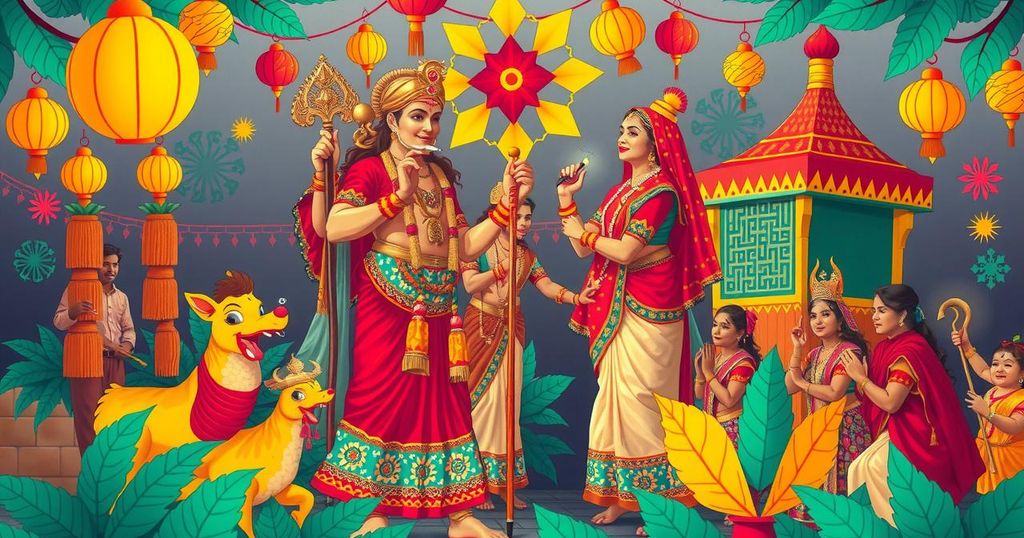Hindu Voters as a Decisive Factor in Bangladesh’s Upcoming Elections

Hindu voters in Bangladesh, comprising about eight percent of the population, are increasingly influential in upcoming elections due to their historical significance and recent experiences of persecution. Political parties are expected to focus on securing their votes amidst rising dissatisfaction with traditional support platforms, particularly the Awami League. As elections approach, Hindu voters are organizing to voice their concerns, indicating their potential as a decisive electoral force.
In Bangladesh, minority voters can significantly influence electoral outcomes, particularly when they constitute between five to 15 percent of the electorate. This trend is evident in democratic environments globally, including the United States, India, France, and the United Kingdom, where minority voting preferences have been pivotal in elections. For instance, minority voters played a crucial role in former President Barack Obama’s election victories, while similar patterns have emerged in various regions of India and the UK where parties capitalized on minority support.
The Hindu electorate in Bangladesh comprises approximately eight percent of the population, or 13 million individuals. Historically, Hindus have been a vital factor in national elections, although their percentage of the overall population has declined from 13.5 percent in 1974 to 7.95 percent in 2022. Despite this reduction, the absolute number of Hindus has increased, reflecting a unique demographic trend that signifies their ongoing electoral importance. For example, census data has shown a steady increase in Hindu absolute numbers despite a decline in relative percentages.
Traditionally, a significant portion of the Hindu vote has gone to the Awami League, largely seen as a pro-secular party committed to minority rights. However, under Awami League governance, the Hindu community has faced persecution, including land grabbing and communal violence, undermining the party’s claims to minority protection. Understanding the voting behavior of Hindus requires a nuanced assessment of their political, economic, and security concerns, as the overarching need is for assurance of safety.
Following the fall of the Awami League government in August of last year, the Hindu population encountered renewed persecution, compromising their security and wellbeing. Past disruptions in political stability indicate that this community has often faced violence reminiscent of earlier national crises. Analysis of election results suggests that the Hindu vote is crucial, influencing approximately 88 parliamentary constituencies where their representation reaches over ten percent.
Despite the Awami League’s historical hold on Hindu voters, recent events have led to rising discontent. Many Hindus are now considering alternative political options. Parties such as the BNP and NCP are adjusting their strategies to appeal to this demographic, demonstrating a shift towards addressing minority welfare. Notably, the BNP has softened its stance on Hindu issues, previously marred by negative rhetoric in earlier elections.
With upcoming national elections anticipated in December, political parties are keen to attract Hindu voters, who have become increasingly organized and vocal. Initiatives taken since August 5 show a united front demanding attention towards their concerns. This situation presents a critical opportunity for any political entity that proposes genuine minority protection policies to potentially leverage the support of Hindu voters as a pivotal factor in electoral success.
Although past trust in the Awami League stemmed from historical ties to the liberation struggle, continuing communal unrest has eroded this confidence. Noteworthy violent incidents tied to local Awami League leaders and the existence of discriminatory laws, such as the ‘Vested Property Act,’ exacerbate the fears of the Hindu community. Moving forward, any party willing to prioritize the security and rights of minorities could see the Hindu vote become a crucial asset in the approaching elections.
In summary, the Hindu electorate in Bangladesh is positioned to play a decisive role in the forthcoming elections, presenting an opportunity for political parties aiming to gain their support. Historical trends indicate their significant influence, which is shaped by a myriad of factors including security, political representation, and recent experiences of persecution. Recognizing the importance of these voters and addressing their concerns with genuine protective policies could allow parties to harness their electoral power effectively, potentially changing the political landscape in Bangladesh.
Original Source: www.thehansindia.com







